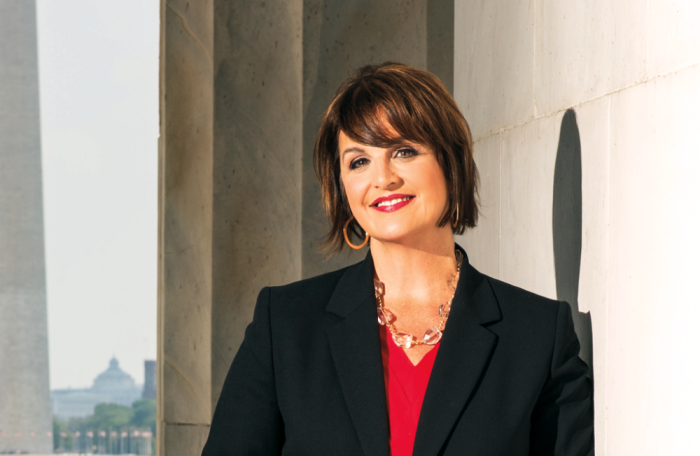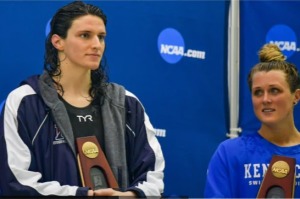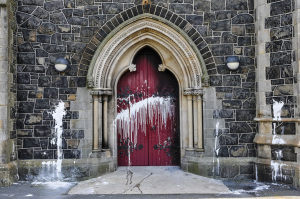USCIRF commissioner resigns, cites concern over 'move towards more bureaucratic controls'

Longtime religious freedom advocate Kristina Arriaga has resigned as a commissioner on the U.S. Commission on International Religious Freedom, citing concerns over the possibility of more bureaucratic control and what she says is the commission’s inability to live up to its full potential.
Arriaga, who was appointed to the bipartisan congressionally-mandated commission by Speaker of the House Paul Ryan in 2016 and served as the commission’s vice chair in 2017 and 2018, informed Speaker of the House Nancy Pelosi of her decision to resign from the volunteer role this week.
Her term was set to end in May 2020.
On Thursday, Arriaga sent a note to fellow USCIRF commissioners, stating that “[t]he move towards more bureaucratic controls has undermined the independence of commissioners to the point I can no longer be an effective advocate for religious freedom.”
In an op-ed in the Wall Street Journal, Arriaga voiced her displeasure with a Senate bill introduced in September that she fears would “shift” USCIRF’s stated purpose and “burden commissioners with new bureaucratic hurdles.”
“[The bill] would gut USCIRF by changing its mission and burdening commissioners with the very kind of innovation-killing bureaucracy they were designed to fight,” Arriaga told The Christian Post in an email.
“The bill expanded USCIRF’s mission to include monitoring the ‘abuse of religion to justify human rights violations.' This expansion creates an ideological loophole for USCIRF to denounce, for instance, sex segregation at religious services, circumcision or religions that oppose same-sex relationships.”
USCIRF was created by the International Religious Freedom Act of 1998 to monitor the universal right to freedom of religion or belief abroad and submit recommendations to the federal government and congress. The commission is led by a team of nine unpaid volunteer commissioners who are appointed by the president and congressional leaders from both parties.
Being a volunteer commission, commissioners are traditionally not muted by the geopolitical ramifications that might limit the State Department’s Office of International Religious Freedom.
The legislation that Arriaga objects to is the United States Commission on International Religious Freedom Act of 2019, which was introduced by a bipartisan group of lawmakers, including Republicans Marco Rubio and Cory Gardner, as well as Democrats Bob Menendez, Dick Durbin and Chris Coons.
The bill would have provided $4.5 million in standalone funding for USCIRF for the next four years. USCIRF is currently under the continuing resolution that expires on Nov. 21.
However, the bill was pulled after objections were made by USCIRF commissioners past and present to congressional offices in charge of drafting the bill, according to a source with knowledge of the negotiations.
Other objections to the bill include language that critics feel subjects the commission to rules that apply to other congressional agencies and places a strict limit on commissioners traveling in their private capacities.
Also, critics say the bill would subject commissioners to monitoring over third party speech about them.
For instance, the bill would require commissioners to notify the other commissioners and the USCIRF executive director anytime they are invited to speak in their official capacity at an event. Additionally, the proposed rules would allow other commissioners to be able to vote on whether that commissioner should be sent to the event or if another commissioner should go instead.
The bill would also prohibit the commissioners’ USCIRF titles from being used at events in which they are speaking in their own capacities. USCIRF commissioners would be required to submit reports to Congress that, among other things, detail instances in which their USCIRF’s titles were used inappropriately.
Any travel outside the U.S. that is paid for by someone or some entity that is not the commissioner, a family member or the U.S. government would also need to be reported to Congress.
Critics fear such rules are meant to control the commissioners rather than “enable the mission” of the commission.
“Rules are necessary. All organizations have them,” Arriaga said. “But the new rules do not enable the mission. On the contrary, the new set of mandatory permission slips only serve to muzzle the unpaid, volunteer commissioners and to chill much-needed innovation.”
The pulled bill has not yet been replaced. Arriaga explained that even if the bill in question is replaced by a one-year “as-is” funding bill that some may see as a compromise, she believes that “Congress will only succeed in giving the moribund agency enough oxygen to crawl for 12 more months.”
“USCIRF is already being choked by bureaucratic weeds,” she argued.
USCIRF Chair Tony Perkins, known most for his conservative Christian activism with the Family Research Council, agrees with Arriaga's concerns.
"While surprised by her resignation, I agree with her concerns," Perkins wrote on Twitter. "We will continue to work to ensure USCIRF will not be put on a short leash, but remain a watchdog for religious freedom."
Perkins told World Magazine that Congress' attempt at "micromanaging" USCIRF is in many ways "turning this watchdog into a lapdog.”
Arriaga told CP she is additionally concerned that USCIRF is not taking the steps to adequately “move into the 21st century.”
“In 1942, for instance, VOA began broadcasting to combat Nazi propaganda with accurate and unbiased information. Radio was the technology of the day,” Arriaga stated. “Today, despots like Russia and China use technology and social media to repress believers. We need to be using the same tools to educate and liberate people. It is that simple. That’s the shame of it — the missed potential to do good, to be the voice for those who are voiceless.”
She stressed that with over 80 percent of the world’s population living in countries with serious religious restrictions, those who are persecuted for their faith or lack of it “deserve much better advocacy from the most powerful country in the world.”
CP reached out to USCIRF for formal comment on Arriaga’s announcement and claims. A response is pending.
Arriaga told CP that she will continue to run her small company and plans to continue advocating for freedom of religion or belief worldwide through a number of NGOs that she has worked with over the years.
She formerly served as the executive director of the religious freedom law firm Becket, which has defended a number of high-profile religious freedom clients, including the Little Sisters of the Poor.
Arriaga’s career started at the Cuban American National Foundation, where she worked for U.S. Ambassador Jose Sorzano. She also served as an adviser to the United Nations Human Rights Commission.
Through The Valladares Foundation, she also helped orchestrate an airplane rescue of a Cuban defector’s family in the 1990s.
Arriaga was one of two USCIRF commissioners who visited American missionary Andrew Brunson during his lengthy imprisonment in Turkey from 2016 to 2018.
The Newseum in Washington, D.C., awarded Arriaga its Religious Freedom Award in 2017.
Follow Samuel Smith on Twitter: @IamSamSmith
or Facebook: SamuelSmithCP





























